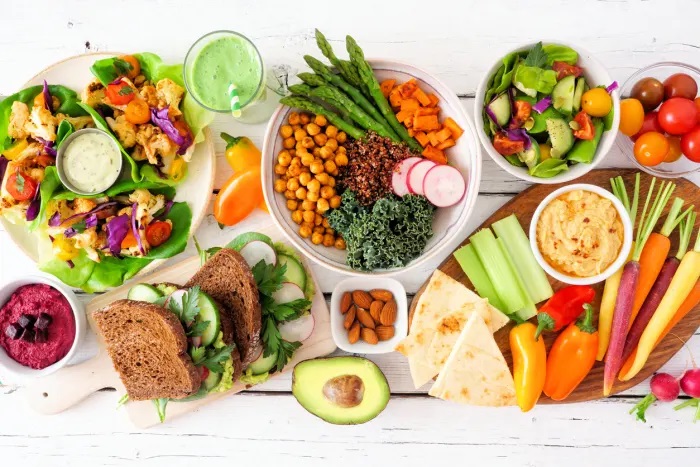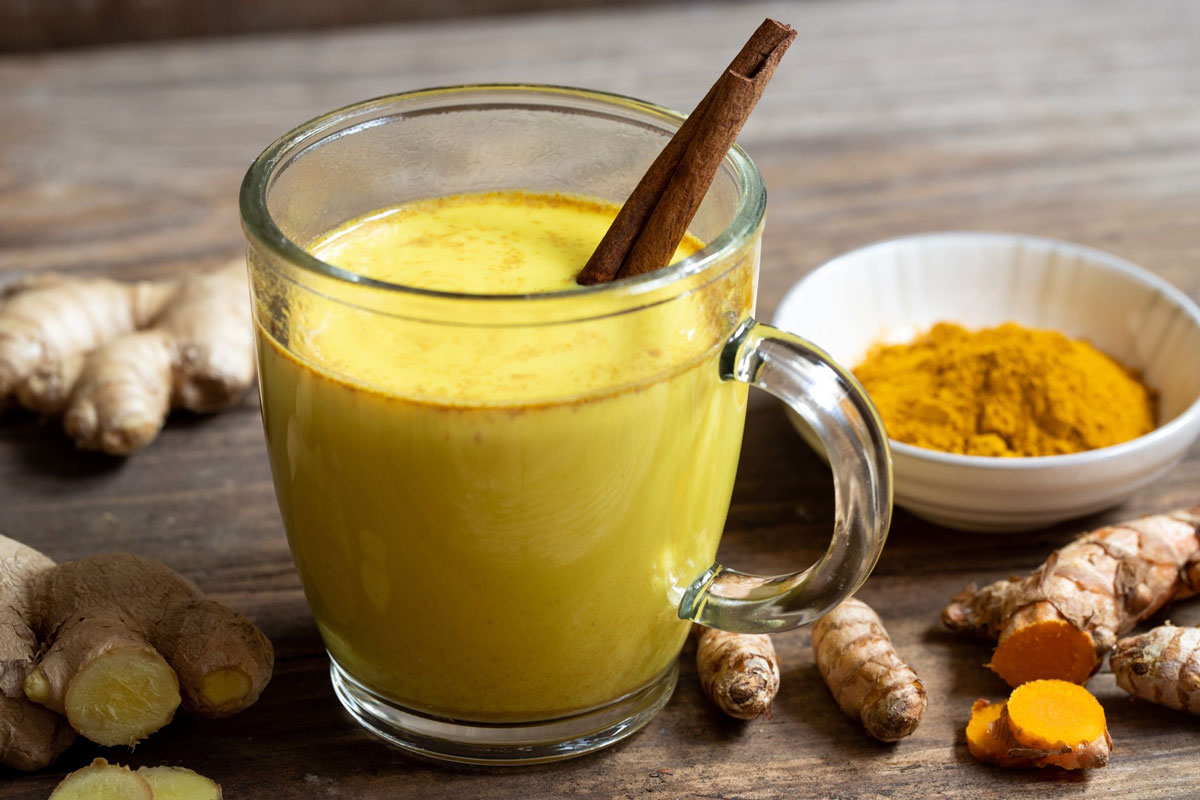Dr. Weil’s Anti-Inflammatory Diet
It is becoming increasingly clear that chronic inflammation is the root cause of many serious illnesses – including heart disease, many cancers, and Alzheimer’s disease. We all know and have experienced inflammation on the surface of the body as local redness, heat, swelling and pain. It is the cornerstone of the body’s healing response, bringing more nourishment and more immune activity to a site of injury or infection. But when inflammation persists or serves no purpose, it damages the body and causes illness. Stress, sedentarism, genetic predisposition, and exposure to toxins can all contribute to such chronic inflammation, and dietary choices play a significant role as well. Learning how specific foods influence the inflammatory process is the best strategy for containing it and reducing long-term disease risks.

The Anti-Inflammatory Diet is not a diet in the popular sense – it is not intended as a weight-loss program (although people can and do lose weight on it), nor is the Anti-Inflammatory Diet an eating plan to stay on for a limited period of time. Rather, it is a way of selecting and preparing anti-inflammatory foods based on the scientific evidence of how they can help your body maintain optimum health. Along with influencing inflammation, this dietary strategy will provide steady energy and ample vitamins, minerals, essential fatty acids, dietary fiber, and protective phytonutrients.
You can also adapt your existing recipes according to these anti-inflammatory diet tips:
- Aim for variety.
- Include as much fresh food as possible.
- Minimize your consumption of processed foods and fast food.
- Eat an abundance of fruits and vegetables.
Caloric Intake
Most adults need to consume between 2,000 and 3,000 calories a day.
Women and smaller and less active people need fewer calories.
Men and larger and more active people need more calories.
If you are eating the appropriate number of calories for your level of activity, your weight should not fluctuate greatly.
The distribution of calories you take in should be as follows: 40 to 50 percent from carbohydrates, 30 percent from fat, and 20 to 30 percent from protein.
Pursue to include carbohydrates, fat, and protein at each meal.
Carbohydrates
On a 2,000-calorie-a-day diet, adult women should consume between 160 to 200 grams of carbohydrates a day.
Adult men should consume between 240 to 300 grams of carbohydrates a day.
The majority of this should be in the form of less-refined, less-processed foods with a low glycemic load.
Reduce significantly your consumption of foods made with flour and sugar, especially bread and most packaged snack foods (including chips and pretzels).
Eat more whole grains, such as brown rice, cracked wheat, and barley, in which the grain is intact or in a few large pieces. These are preferable to whole wheat flour products, which have roughly the same glycemic index as white flour products.
Eat more beans, winter squashes, and sweet potatoes.
Cook wholegrain pasta al dente, and eat it in moderation.
Avoid products made with sugars.
Fat
On a 2,000-calorie-a-day diet, 600 calories can come from fat – that is, about 67 grams.
Reduce your intake of saturated fat by eating less cream, high-fat cheese and products made with palm kernel oil.
Use extra-virgin olive oil for salads and ghee for cooking. If you want a neutral tasting oil, avocado oil is a good choice.

Strictly avoid margarine, vegetable shortening, and all products listing them as ingredients. Strictly avoid all products made with partially hydrogenated oils of any kind.
Include in your diet avocados and nuts, especially walnuts, cashews, almonds, and nut butters made from them.
For omega-3 fatty acids, eat ecological eggs; hemp seeds and flaxseeds (preferably freshly ground); or take a high-quality omega-3 supplement made from algae.
Protein
On a 2,000-calorie-a-day diet, your daily intake of protein should be between 80 and 120 grams. Eat less protein if you have liver or kidney problems, allergies, or autoimmune disease.
Avoid consumption of animal protein except for high-quality natural cheese, yogurt and organic pastured eggs.
Eat more vegetable protein, especially from beans in general and soybeans in particular. Become familiar with the range of whole-soy foods available and find ones you like. Avoid highly processed ones, such as meat replacements, and choose tofu, tempeh and edamame instead.
Fiber
Try to eat 40 grams of fiber a day. You can achieve this by increasing your consumption of fruit, especially berries, vegetables (especially beans and avocados), and whole grains.
Ready-made cereals can be good fiber sources, but read labels to make sure they give you at least 4 and preferably 5 grams of bran fiber per one-ounce serving, and that they do not contain sugar or additives.
Phytonutrients
To get maximum nutritional protection against age-related diseases (including cardiovascular disease, cancer, and neurodegenerative disease) as well as against environmental toxicity, eat a variety of fruits, vegetables and mushrooms (especially the Asian ones).
Choose fruits and vegetables from all parts of the color spectrum, especially berries, tomatoes, orange and yellow fruits, and dark leafy greens.
Choose organic produce whenever possible. Learn which conventionally grown crops are most likely to carry pesticide residues and avoid them.
Eat cruciferous (cabbage-family) vegetables regularly.
Drink tea (especially good quality white, green or oolong tea) and medicinal plants macerate.
For your sweet tooth, enjoy plain dark chocolate in moderation (with a minimum cocoa content of 70 percent, and no white sugar if possible).
Other Measures To Consider
If you are not regularly eating ginger and turmeric, consider taking these in supplemental form.
Add coenzyme Q10 (CoQ10) to your daily regimen: 60-100 milligrams of a softgel form taken with your largest meal.
You can also take frankincense supplements, as it was proven in several studies to have great anti-inflammatory and anti-tumor properties.
Water
Drink pure water throughout the day to maintain your body well hydrated.
Avoid tap water. Use glass bottled water, or get a home water purifier if you do not live in an area where you can have access to fresh pure water directly from nature.
Bonus: Anti-Inflammatory Golden Milk

On the Japanese island of Okinawa, turmeric tea is a way of life. The population drinks this traditional favorite daily, and numerous studies have linked turmeric with wide-ranging anti-inflammatory effects. Perhaps this helps to explain why the people of Okinawa have one of the world’s longest average life spans: 81.2 years.
Used to impart color and flavor to everything from traditional Indian curries to ballpark mustard, this deep-orange herb’s many health benefits are well documented. In a comprehensive summary of 700 studies published by ethnobotanist James A. Duke, PhD., in the October, 2007 issue of Alternative & Complementary Therapies, Duke found extensive evidence that turmeric can reduce inflammation and support brain and joint health.
Drinkers of Golden Milk can also reap the benefits of ginger, a natural anti-inflammatory that can help relieve symptoms of arthritis, bursitis and other musculoskeletal ailments. Additionally, Golden Milk is flavored by black pepper, whose sharp taste comes from the alkaloid piperine, which enhances the absorption and the anti-inflammatory effects of turmeric. Plus, black pepper contains a number of essential nutrients, including manganese, iron and vitamin K, and is commonly used to calm digestive issues.
Perfect for an evening drink just before bed, here is Dr. Weil’s recipe for Golden Milk:
- Heat 2 cups of light, unsweetened coconut milk (or almond or soymilk)
- Add 1/2 tablespoon peeled, grated fresh ginger
- Add 1 tablespoon peeled, grated fresh turmeric
- Add 3-4 black peppercorns
- Heat all ingredients in a saucepan
- Stir well
- Bring to a simmer, and then let it simmer covered for 10 minutes
- Strain and sweeten to taste (if desired) with coconut sugar.
Author: Dr. Andrew Weil, M.D.
yogaesoteric
June 30, 2024
